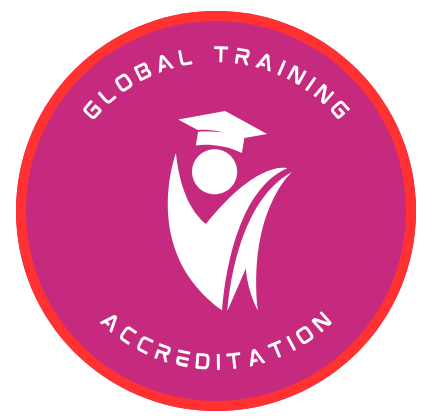
GLOBAL TRAINING ACCREDITATION COUNCIL
Global Training Accreditation is a private, virtual accreditation body that specializes in recognizing and endorsing competency-based education and training programs. Operating primarily through digital platforms, it offers accreditation services to institutions and training providers that focus on practical, outcome-driven learning. The organization emphasizes the validation of skills and competencies rather than traditional time-based instruction, aligning with modern workforce demands. By ensuring that accredited programs meet set benchmarks for quality, relevance, and learner performance, Global Training Accreditation aims to support the global shift toward more flexible, skills-oriented education models.
Global Training Accreditation is a private, virtual body dedicated to accrediting competency-based education programs. Its core mission is to bring authentic, recognized qualifications to working professionals who may not have the time or opportunity to pursue traditional, formal education. By validating learning outcomes gained through experience, workplace training, or short-term courses, the organization helps bridge the gap between practical skills and formal credentials.
This approach supports career advancement for on-the-job professionals by offering flexible, credible pathways to certification. Through rigorous standards and a focus on real-world competence, Global Training Accreditation ensures that its accredited programs align with industry needs and global best practices.
You’re absolutely right—there are several private, non-governmental accreditation bodies that operate globally, accrediting training providers, institutions, and specific programs. Here’s a clearer overview with some examples:
1. Private Program & Institution Accreditors
Global Accreditation Federation (GAF): Accredits colleges, universities, coaching practices, and training centers under its program accreditation framework oxfordab.co.uk+4globalaccred.com+4worldac.org+4.
Global Accreditation Council of Technical and Higher Education (GACTHE): Independent, offers accreditation to educational institutions and training companies globally gacthe.org+1gacthe.org+1.
AHQSE (Accreditation High Quality Standard Education): Validates institutions and technical/vocational training providers with its own international quality standards ahqse.org.
2. Specialized Program Accreditors
PMI Global Accreditation Center (GAC): Accredits degree and certificate programs specifically in project management.
Global Training Accreditation is a private, virtual accreditation body that specializes in recognizing and endorsing competency-based education and training programs. Operating primarily through digital platforms, it offers accreditation services to institutions and training providers that focus on practical, outcome-driven learning. The organization emphasizes the validation of skills and competencies rather than traditional time-based instruction, aligning with modern workforce demands. By ensuring that accredited programs meet set benchmarks for quality, relevance, and learner performance, Global Training Accreditation aims to support the global shift toward more flexible, skills-oriented education models.
The purpose of this body is to bring authentic qualification to on job professionals who do not have time for formal education. write parawise
Global Training Accreditation is a private, virtual body dedicated to accrediting competency-based education programs. Its core mission is to bring authentic, recognized qualifications to working professionals who may not have the time or opportunity to pursue traditional, formal education. By validating learning outcomes gained through experience, workplace training, or short-term courses, the organization helps bridge the gap between practical skills and formal credentials.
This approach supports career advancement for on-the-job professionals by offering flexible, credible pathways to certification. Through rigorous standards and a focus on real-world competence, Global Training Accreditation ensures that its accredited programs align with industry needs and global best practices.
What Is Competency Short Certification?
Competency Short Certification is a type of credential that recognizes an individual’s ability to perform specific skills or tasks effectively, usually in a particular job or industry area. Unlike traditional diplomas or degrees, which often require years of study, competency short certifications are focused, brief, and designed to validate practical competencies gained through work experience, training, or short courses.
What Is Recognition of prior learning?
Recognition of Prior Learning (RPL) is a process that evaluates and formally acknowledges the skills, knowledge, and experience a person has gained outside of traditional education—such as through work, informal training, volunteering, or life experience.
Skills-Based Assessment: RPL focuses on what you know and can do, not where or how you learned it.
Evidence-Based: Learners submit evidence (e.g., job experience, portfolios, certificates, supervisor testimonials) to prove their competence.
No Need to Re-Learn: If you already have the skills, RPL can exempt you from repeating courses or training.
Flexible & Inclusive: Ideal for adult learners, professionals, and workers who gained expertise informally.
 Benefits of RPL:
Benefits of RPL:Saves time and money on education.
Boosts career prospects by converting experience into recognized qualifications.
Encourages lifelong learning by valuing all forms of learning—formal or informal.
Supports workforce development by identifying and certifying hidden skills in employees.
A person who has worked as an office administrator for 10 years—but has no formal degree—can receive a recognized qualification (like a diploma in office management) through RPL by demonstrating their skills and experience to an accrediting body. Or suppose a health practitioner has experience in paeds department and holds evidence of it is eligible for certification.
In short, Recognition of Prior Learning bridges the gap between real-world experience and formal qualifications—making education more accessible, relevant, and fair.